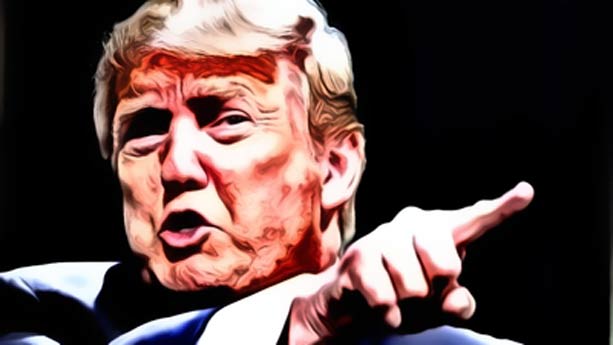
After months of conflicting messages, last week the Trump administration took a big step toward drastically expanding punishments for human rights abusers and kleptocrats all over the world. The move also reveals how government professionals and political officials inside the administration are finding ways to work together one year into the Trump presidency.
There was understandable skepticism that the Trump team would enthusiastically enforce the Global Magnitsky Human Rights Accountability Act, signed by President Barack Obama in his final days in office, which authorizes the president to block visas and sanction individuals and entities from any country that abuses human rights or engages in "acts of significant corruption." But the first-ever list of 51 such targets, announced by the State and Treasury departments on Dec. 21, was a clear sign the Trump administration is supporting the law and implementing it in good faith.
The world's worst crooks and killers should be running scared. The law and the executive order President Donald Trump issued make it much easier for the U.S. government to single out and punish egregious cases of abuse. Included in the list were Artem Chayka, the son of the prosecutor general of Russia; Gao Yan, a senior Chinese security official; and Maung Maung Soe, who oversaw Burmese military atrocities against ethnic Rohingya.
"Today, the United States is taking a strong stand against human rights abuse and corruption globally by shutting these bad actors out of the U.S. financial system," Treasury Secretary Steven Mnuchin said, promising that the Trump administration would continue holding human rights abusers to account.
A senior administration official said last week's actions were meant to set the standard going forward for Trump's human rights policy. Although Congress requires an annual report on the law's implementation, the Trump team is expected to issue new Global Magnitsky sanctions on a rolling basis, meaning rights abusers cannot enjoy confidence that they are safe at any time.
The new approach does seem to run counter to signals that have been coming from the administration's top ranks. In May, Secretary of State Rex Tillerson said promoting American values is too often "an obstacle" to advancing U.S. interests. His top policy staffer, Brian Hook, then wrote him a memo explaining why and how human rights promotion can be a useful tool in foreign policy.
The president's national security strategy, also issued last week, barely mentions human rights, instead focusing on enhancing American influence by setting a good example. "We do not seek to impose our way of life on anyone, but we will champion the values without apology," Trump said in his speech rolling out the document.
Amid all that confusion, Trump's government produced a list of human rights abusers to sanction that was serious, well-constructed and crafted to implement the law as intended, said Daniel Fried, who was the State Department's sanctions coordinator during the Obama administration.
The Trump list gets at some of the worst actors without being so expansive as to exacerbate the risk of abuse and overreach, Fried said. That shows the experts at the State and Treasury departments were given the support needed from higher-ups to do the job right.
"Despite all this talk about the 'deep state,' it shows how the professionals who run the policy are capable of working under difficult circumstances and doing great work," Fried said. "And if the Trump administration gets credit for it, so be it."
The authors of the law, Sens. Benjamin Cardin, D-Md., and John McCain, R-Ariz., praised the administration in a statement but also expressed their gratitude to career professionals inside the bureaucracy "whose expertise and dedication to justice made today's Global Magnitsky sanctions designations possible."
Hermitage Capital Management chief William Browder, who started the Magnitsky effort years ago, compared the Trump administration's action favorably to that of the Obama team. Browder's lawyer, Sergei Magnitsky, died in Russian custody in 2009 after being tortured. He had exposed Russian corruption, and his arrest and posthumous conviction are widely believed to have been politically motivated.
Browder's first effort was to help enact a Russia-specific Magnitsky bill, which Obama signed reluctantly in 2012 after it passed overwhelmingly in Congress. In response, the Russian government banned American adoption of Russian children.
Russia's campaign against the original Magnitsky bill was expansive and included an approach by Russian lobbyists to the Trump campaign that resulted in a now infamous June 2016 meeting with Donald Trump Jr. That probe has clearly backfired, as the Trump administration is implementing both Magnitsky laws with vigor.
No matter how or why it happened, this is a step in the right direction for the Trump administration. Still, absent a comprehensive, organized and well- articulated human rights policy, it won't be nearly enough.
Comment by clicking here.


 Contact The Editor
Contact The Editor
 Articles By This Author
Articles By This Author